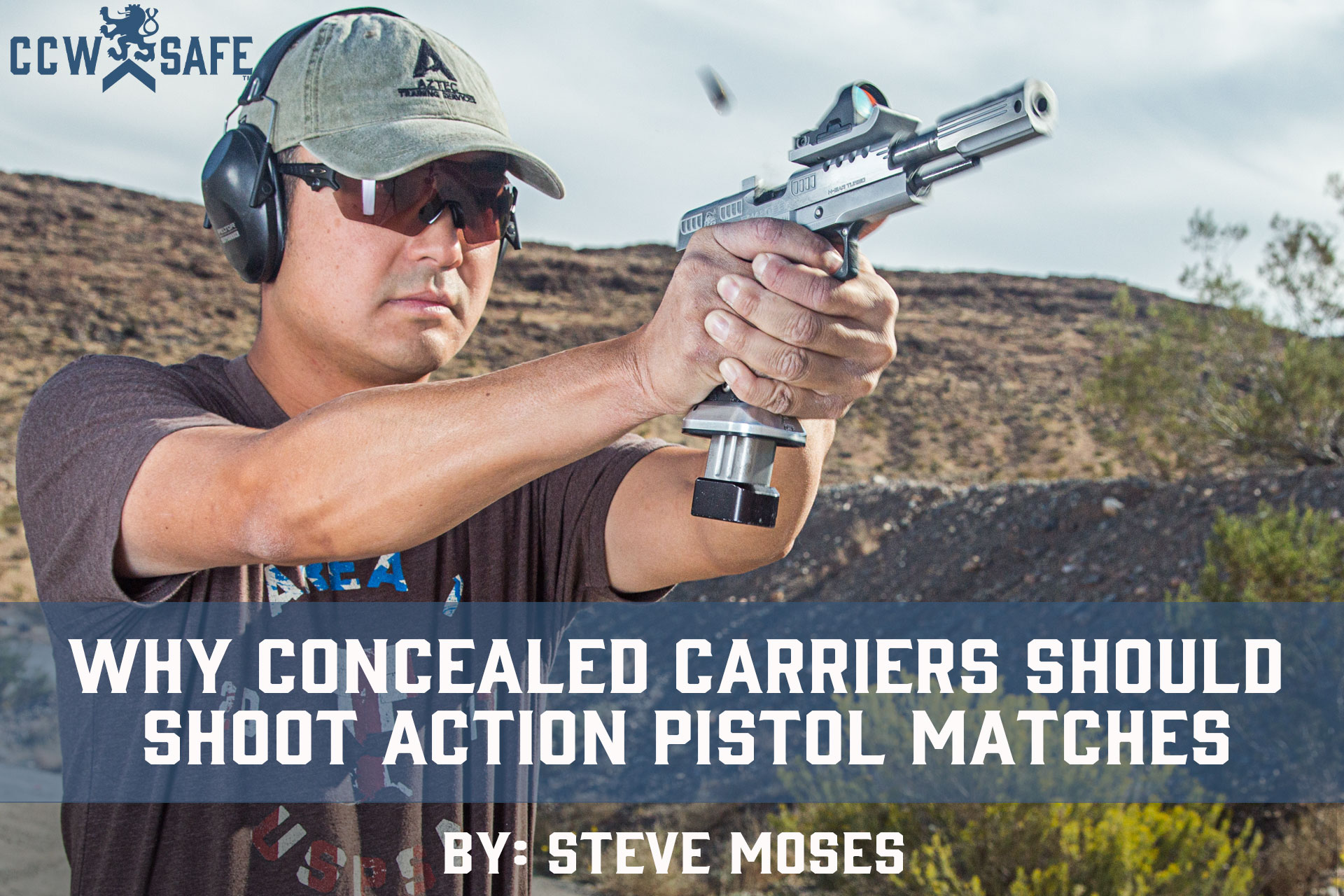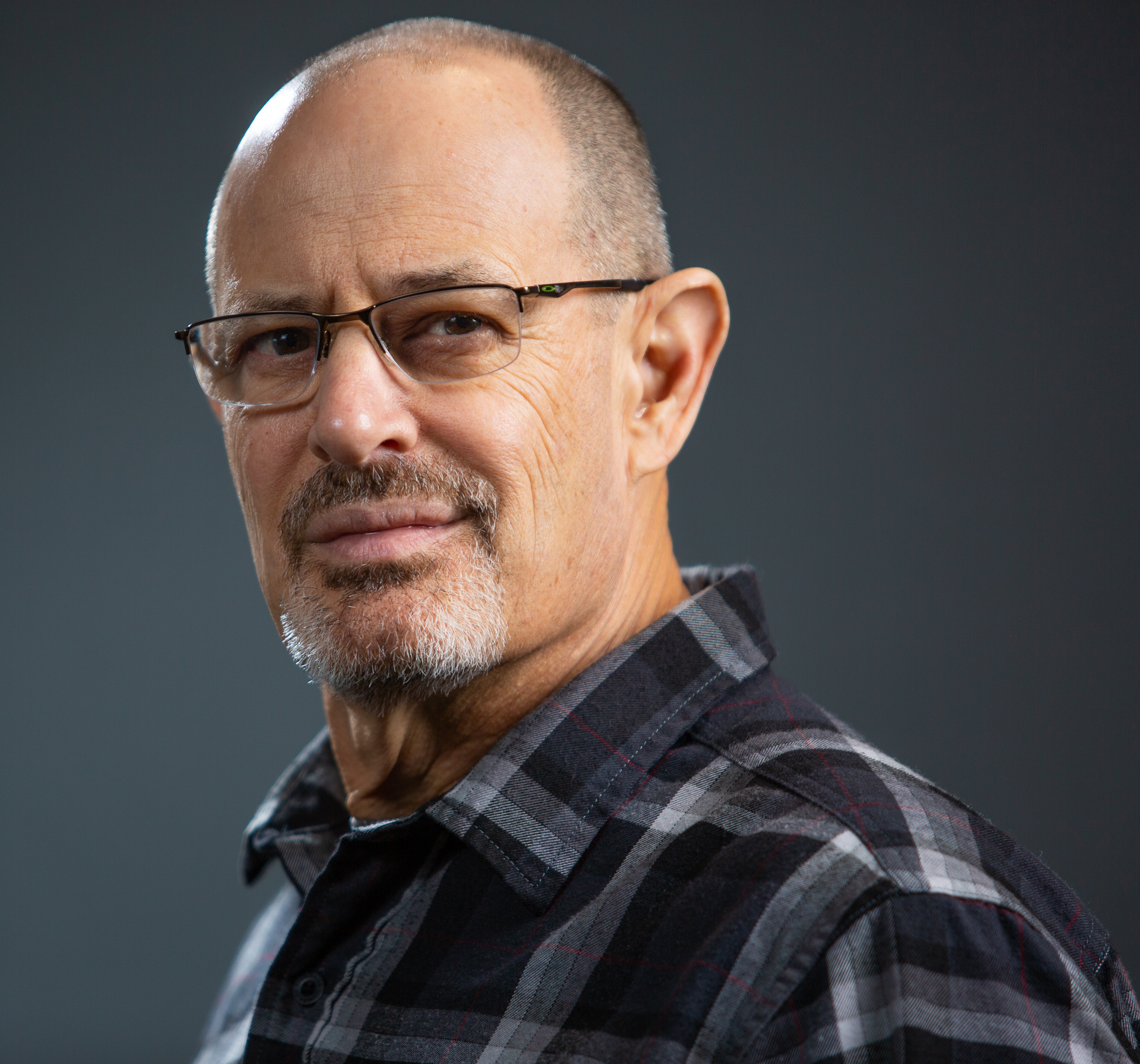
Posted on July 29, 2019
WHY CONCEALED CARRIERS SHOULD SHOOT ACTION PISTOL MATCHES
WHY CONCEALED CARRIERS SHOULD SHOOT ACTION PISTOL MATCHES
There are multiple reasons that concealed carriers should consider participating in shooting sports like United States Practical Shooting Association, International Defensive Pistol Association, and variations thereof in the form of local club matches or even unsanctioned “let’s get a group of shooters together and compete against each other” matches.
It is my opinion that in no way does participation in competitive shooting matches alone adequately prepare a concealed carrier to competently deal with a lethal threat in the real world, and at worse defaulting to certain stage management shooting positions often used in matches to save time can actually subject the concealed carrier to greater risk of being injured or killed.
However, any concealed carrier that has invested the time and money to train under competent defensive handgun instructors and has a good understanding of the laws of self-defense, the importance of avoidance, deterrence, de-escalation, and disengagement, the knowledge of how to manage unknown contacts or contacts with questionable intent, and ability to implement proven tactics for the timely use of surprise, speed, and all necessary violence of action in order to turn the tables on a violent criminal actor should benefit greatly from participating in monthly action pistol shooting competitions.
Listed below are five reasons that concealed carriers should consider participating in action pistol shooting matches:
- GETS US OF OUR COMFORT ZONE AND INOCULATES US FOR STRESS. For the majority of shooters new to competition, it is hard not to feel anxious when your name is called to shoot a stage, and the anxiety tends to ramp up during the last few seconds while waiting for the beep of the timer. The shooter is expected to then respond to the beep by drawing or otherwise accessing their handgun and engaging one or more targets in accordance with the stage descriptions. The objective is to shoot accurately and quickly without incurring any penalties assessed for not complying with all of the rules for both the stage and the match. Shooters typically discover that anxiety is normal, and that they are far more capable of dealing with pressure than they thought. Shooters may find that they perform better when they stop worrying about how well another shooter is doing and instead focus only on the things that they can control. A concealed carrier who has confidence in their ability to tolerate stress and then quickly and competently respond on cue in in many cases is far less likely to under-react or over-react under circumstances where their lives might be at risk due to the possible actions of others.
- FORCES US TO BE AWARE OF WHAT IS GOING ON AROUND US. Most action pistol matches involve multiple target identification and often require the shooter to move from one location to another. Multiple videos of actual defensive shootings have shown the benefit of being able to quickly see and respond to the actions of others along with moving to more defensible positions, so any time spent doing this in action pistol matches can better prepare concealed carriers to respond faster and move more effectively in the event they are actually forced to defend themselves.
- SHOWS US HOLES IN OUR GAME. Action pistol matches may use different scoring systems in order to place shooters based upon performance, but all scoring systems that I am aware of put a premium on accuracy and speed. At the risk of being called a Tactical Nerd, I think concealed carriers should concentrate more on making excellent hits as quickly as possible as opposed to trying to mimic the actions of the highly skilled competitive shooters whose sole objective is to score as high as possible by moving as fast as possible in a stage in which they had the advantage of being able to plan every move and shot before the timer went off. If I shoot a match and its apparent that my accuracy was not up to par, then I need to work on my accuracy after the match. The same is true if my first shot from the holster or splits (times) between multiple shots is markedly slower than that of shooters whose performances I judge to be good.
- STAGES REQUIRE PROBLEM SOLVING. Each match stage starts with instructions as to its course of fire such as what targets to engage, how many rounds to fire at each, and from what positions they must be engaged. Shooters must then navigate through this course of fire without incurring any time penalties caused by overlooking targets or not complying with stage or match rules. If a shooter is unfamiliar with the operation of his or her handgun or must consciously concentrate on properly performing basic shooting and/or reloading mechanics, then their ability to follow stage directions and deal with any unforeseen issues is compromised. Concealed carriers will find that if they spend sufficient practice time with their handgun outside of the match, then drawing and shooting well in the match occurs much on the sub-conscious level and they can spend more time focusing on compliance with the course of fire and movement from one shooting position to another. Having this ability is a huge plus in the real world when it comes to dealing with situations where our lives may be at risk.
- WORKS OUT PROBLEMS WITH HANDGUNS, SIGHTS, TRIGGERS, AMMUNITION, HOLSTERS, BELTS, AND MAGAZINE POUCHES. I don’t think much more explanation is needed. It is not uncommon in every match to see some shooter discover that he or she has issues with their handgun or support gear. I have even seen shooters struggle with the clothing they were wearing. It is far better to discover these problems here than in the street. As author Orson Scott Card stated in his outstanding Science-Fiction novel ENDER’S GAME, “the essence of training is to allow error without consequence.”
Shooting a monthly action pistol match is no substitute for legitimate defensive pistol training. It is still a game even if actual handguns and live ammunition are used. However, it is a fantastic training aid for concealed carriers who are serious about being able to effectively defend themselves and their loved ones if paired with training under a qualified defensive firearms trainer. There is one more excellent reason to participate in action pistol matches: They are fun! I have met some great people and formed solid friendships as a result.
Not a lot of sports make you better prepared for the day we hope to avoid. If there is a downside, it is that action pistol shooting matches can become addictive.
 |
Steve MosesSteve is a long-time defensive weapons instructor based out of Texas who has trained hundreds of men and women of all ages for more than two decades on how to better prepare to defend themselves and their loved ones. Steve has completed over 80 private-sector and law enforcement-only defensive weapons and tactics classes, and has trained civilian and law-enforcement officers in six states. Moses is a reserve deputy, former member of a multi-precinct Special Response Team, competitive shooter, and martial artist. Steve has written numerous articles for SWAT Magazine and other publications. Steve is a licensed Texas Level 4 Personal Security Officer and Instructor who was Shift Lead on a mega-church security detail for seven years, and has provided close protection for several former foreign Heads of State. He is currently an instructor at Relson Gracie Jiu Jitsu/Krav Maga in Tyler, Texas and Director of Training for Palisade Training Group (www.ptgtrainingllc.com). |